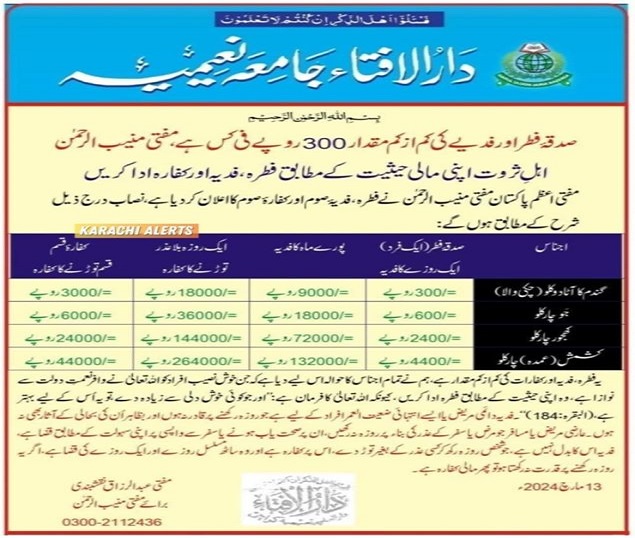As we enter the second ashra of Ramadan, Muslims around the world are trying their best to make the most of this blessed month. Among the several obligations, fitra/fitrana, fidya, and kaffara are on the minds of many Muslims.
Mufti Muneebur Rehman has announced the Fidya, Fitra, and Kaffara amounts for Ramadan 2024, guiding the faithful regarding their religious obligations.
Understanding Fidya, Fitra, and Kaffara
What is Fitra or Fitrana?
Fitra, also known as Fitrana, is an essential aspect of Ramadan. It represents Zakat al-Fitr, the obligatory charity given to mark the end of fasting. Individuals must fulfill their Fitra obligations before Eid prayer.
The amount fluctuates annually based on socioeconomic conditions but is equivalent to three and a half kilograms of staple food. Alternatively, cash can be given instead of food, with the amount determined by converting the value of the food portion into money.
What is Fidya?
On the other hand, Fidya serves a different purpose. It is applicable when individuals are unable to fast during Ramadan due to health reasons such as illness or travel and are unable to make up for the missed fasts later.
In such cases, Fidya entails feeding someone in need for each missed fast. This ensures that those who are unable to fast for valid reasons can still fulfill their religious obligations by providing sustenance to others.
Kaffara: A Penalty for Breaking a Fast
Mufti Muneebur Rehman has also outlined the Kaffara amount for Muslims who break a fast without a valid reason. According to Islamic rules, the Kaffara involves feeding two meals to 60 deserving people.
The cost of fulfilling this obligation varies depending on the chosen food item, ranging from Rs18,000 for wheat flour to Rs264,000 for raisins.
The announcement of Fidya, Fitra, and Kaffara amounts for Ramadan 2024 provides clarity and guidance for Muslims in Pakistan.
These financial obligations ensure that individuals who cannot fast for legitimate reasons can fulfill their religious duties while also supporting those in need within their communities.


